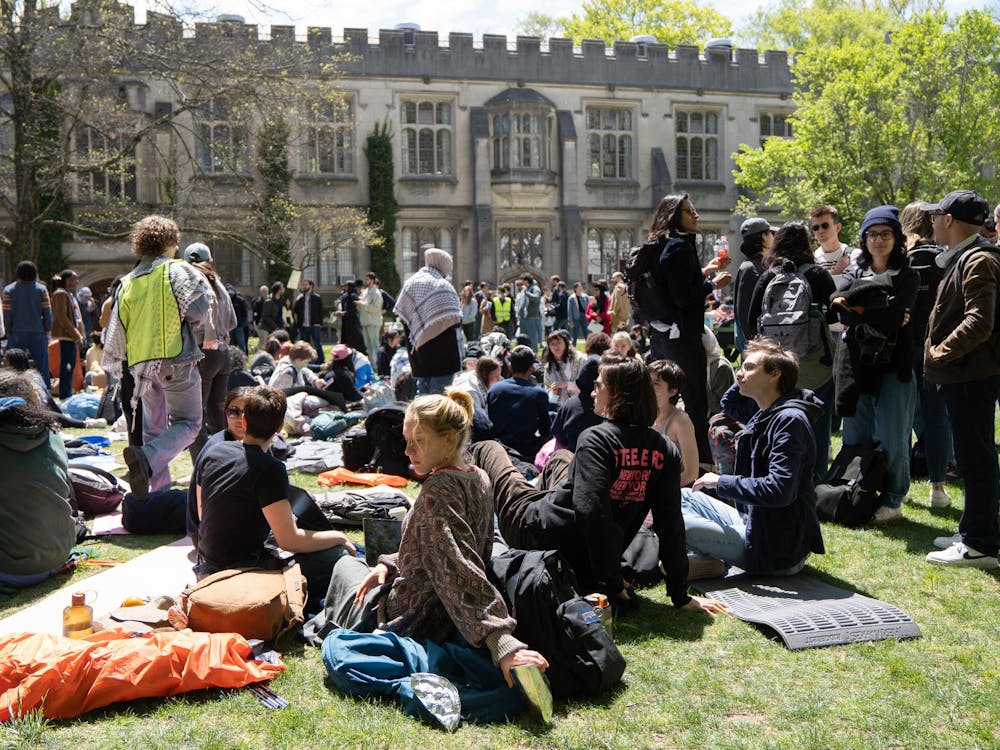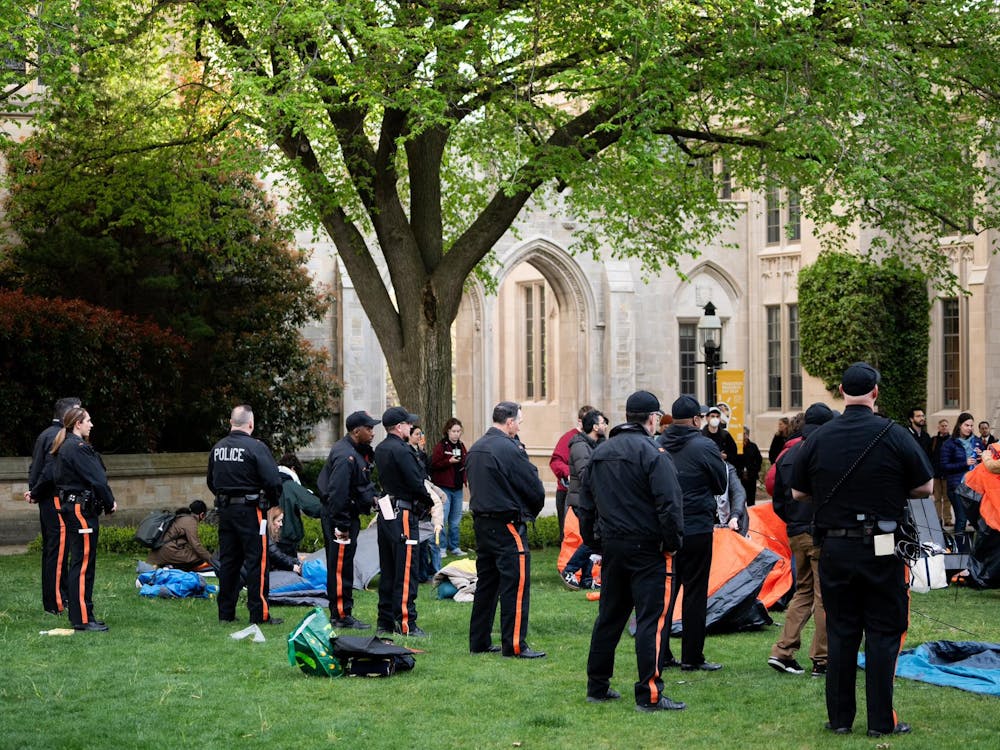Wikipedia has an entire page dedicated to listing important people who graduated from the University. There are so many politicians who would be listed on that page that the “Politics and Government” section gets its own page. The “U.S. Congress” subsection of that page is similarly privileged. Princeton is good at producing politicians. You could say that Princeton alumni make good leaders.
This is unsurprising. Anyone who comes to Princeton is, by necessity, able to navigate the often byzantine college admissions process; the necessary skills and assets translate easily to political campaigning, or climbing through the ranks of businessmen, consultants and financiers. Navigating social, academic and professional hierarchies — from the Street to Wall Street — comes easier to us. But does the preponderance of Princeton alumni at the top of these hierarchies actually show effective leadership, or is it something more nuanced? No doubt we are effective climbers, but I fear we stumble when it comes to making something of the positions we have found ourselves in.
More than anything else, the Office of Admission accepts students on the basis of their ability to “play the game” — to convince the right people of their academic worth and potential. This isn’t to say academic ability plays no part in it —indeed, it is far easier to demonstrate such ability when you actually have it — but it is not the only factor. Ambition, charisma and a drive to overcome hardship will also push an application toward success, and this is as it should be. Less ideal are environmental factors — those that come with a lucky birth. Families with the income to fill transcripts and resumes are an invaluable asset in this game, moreso if they hold a Princeton diploma already.
Navigating these and other hierarchies comes easily to Princeton students, and we are well rewarded for it. With a median mid-career salary of $121,000 Princeton ranks 6thin Payscale.com’s national rankings of earnings potential. Princeton social science majors, earning $155,000 at mid-career, are the best-paid social science majors in the country. Especially when working directly with people, Princeton students climb this (monetary) ladder extraordinarily well. At the same time, only 46 percent of Princeton alumni felt that their work makes the world a better place. This was well behind the leading school by this measure. Thomas Jefferson University, at 84 percent, and even other Ivies; – Harvard and Yale alums find meaning around 60 percent of the time.
Although Harvard and Yale’s numbers are nothing to be proud of —four in 10 alumni don’t think their job improves the world —Princeton’s score here is particularly striking, for a university which prides itself on educating students for work “in the service of all nations.” It seems Princeton succeeds in this measure with less than half of its students.
With so many alumni in leadership positions, how can we fail to serve as the University has supposedly taught us? The answer, I fear, lies in the very skill that defines us all: online casino the ability to rise through well-established hierarchies.
Consider finance: Michael Gibson, writing in Forbes Magazine, complained earlier this year that more than a third of Princeton students (and similar numbers from Harvard) go straight to finance jobs upon graduation. Worse, they tend toward the large companies, dampening dynamism and rewarding behemoths in an industry in desperate need of more creative destruction and fewer corporate juggernauts. Gibson, and Jonathan Lu in his column, Nerdsniping, sellout style,blame a career office interested in providing safe and conventional success for their charges and boosting quantitative placement metrics.
However, the problem extends beyond finance to that field full of leadership positons —politics. Ted Cruz ’92 was criticized for his hollow and pointless “filibuster” against Obamacare last year, a speech clearly calculated to advance his own ambitions. More embarrassing for Princetonians, it later surfaced that, at Harvard Law School, he had refused to study or associate with anyone educated outside Harvard, Princeton and Yale, shunning even those from “minor Ivies.” I see nothing more in Cruz’s calculated political moves and desire to associate with only the conventionally successful than a calculated move to climb his chosen hierarchy.
And in my own field, science, a tenured professorship hardly carries the pay of a banker or the power of a congressman, but the associated independence and security make it a near-equivalent in academia. And it is the path I have set my eyes on, reading up on the key to climbing through graduate school, post-doc and adjunct until reaching the top, with nary a well-informed thought toward other paths.
The Peter Principle states that “in a hierarchy, every employee tends to rise to their level of incompetence.” That Princeton students are particularly good at rising doesn’t mean that they won’t eventually reach their level of incompetence, where we cannot hope to fulfill Princeton’s values of service. Focusing on the climb isn’t leadership, and definitely isn’t service. While the Career Services can, perhaps, help to avoid this by providing a fuller and more fulfilling slate of options for us, it can only help so much. We, University students and future alumni, must actively search for vocations which, contrary to our tendency to climb, encourage us to serve.
Bennett McIntosh is achemistry major from Littleton, Colo. He can be reached at bam2@princeton.edu.









